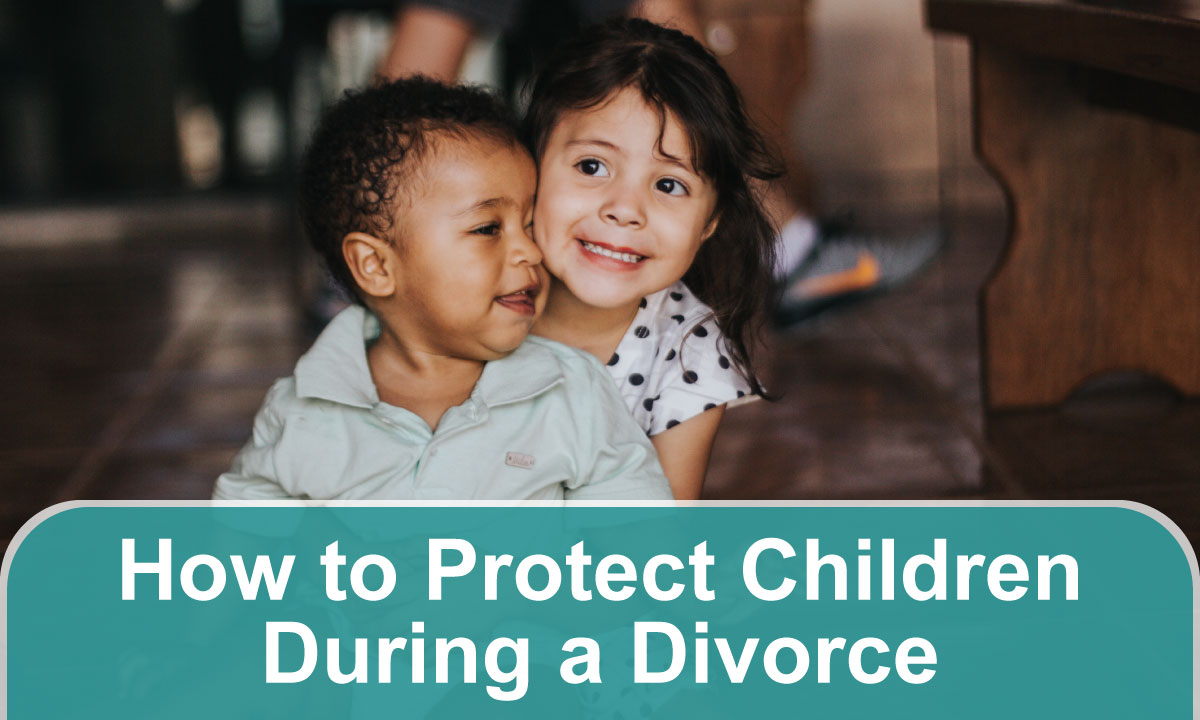
Divorce is difficult for everyone involved, but it is the hardest on the children during divorce. Children do not make the decision for the divorce to occur, but have to deal with many of the ramifications. Luckily there is some guidance on how to help children during divorce:
1. Get therapeutic help for your child.
Even if the child seems ok, having a therapist available for your child gives them a supportive resource. Two of the most important people in the child’s life are involved in a conflict, so having a neutral, trained therapeutic professional available for the child to talk to throughout the process can give them an outlet that is not a part of the conflict.
Sometimes a child will be ok with the divorce for awhile, but then reach a rough patch. If the child already has a therapeutic relationship established, they can immediately plug in and have help resolving whatever is bothering them. If that relationship is not already established, it can take longer for a child to resolve their issues, or it could cause them to not have the help they need during an acute situation.
By establishing therapeutic care for your child upfront, you are setting them up to be supported and helped throughout your divorce proceedings and beyond.
2. Try to proceed with a joint dissolution
By selecting a less adversarial approach to your divorce, you can lessen the conflict for your child during divorce. A joint dissolution is a divorce that you file together after agreeing to the terms. I offer a flat fee joint dissolution, or you can fill out the paperwork yourself and get an attorney review package or unlimited email support package for assistance during the process.
Because you and your partner are making the choices necessary to divorce amicably, you are bringing less conflict into the divorce proceedings. This does not mean you have to agree to absolutely everything right up front. You can go through mediation as many times as needed, or you can work through disagreements with a divorce coach or therapist. Once you agree, you can fill out paperwork together or hire counsel to fill out the paperwork for you.
Another benefit of a joint dissolution is that once it is filed it will be granted very quickly, usually within a week.
3. Speak kindly of the other parent in front of the child
If you want to know how to help children during divorce, one of the biggest tips is to not speak poorly of the other parent in front of the child. That child is composed of half you, half them. So speaking poorly of the other parent is like speaking poorly of half of the child. Additionally, it puts the child in a really awkward position of either agreeing with you, or defending the other parent. This creates conflict for, and within, the child.
Courts also do not like when parents speak poorly of each other in front of the children. So, if you ever end up in court with a parenting case, even if you are just changing an existing parenting plan, and it is revealed that one parent regularly bad mouths the other parent to the child, the judge will not view this favorably.
4. Do not try to micromanage your former partner
While the way dad handles homework in the evenings might drive you batty, or the way mom hovers over the child at the playground might irk you, you need to let it go if you are divorcing. Focusing on micromanaging the other parent is not only difficult on you, it ends up ultimately hurting the child.
Another negative thing about trying to micromanage the other parent is that judges HATE it when parents do this. If they bring evidence of your micromanagement to the Court, the Court will not only dislike the micromanagement, they will often let this be reflected in their rulings.
5. Use a co-parenting app
There are a number of good co-parenting apps, but my favorite, and a favorite of the Courts, is Our Family Wizard, which we refer to as “OFW.” OFW is great because it keeps all of your communication in writing, has a handy scheduling feature, and even has a reimbursement tool. You can grant access to your OFW communication to your lawyer, or even to a judge. You can even pay extra for the “tone meter,” which tells you when your communication to the other side is getting a little too heated.
The nice thing about these apps is that they reduce conflict and facilitate better co-parenting communication. If you have a joint calendar, you don’t have to text each other as much. If you have a reimbursement tool, you don’t have to fight about how to get paid back for that ballet fee. If you’re communicating in writing and you know an attorney or judge might see it, you are less likely to blow things up.
6. Get a great parenting plan in place
I’m sure you know the term “good fences make good neighbors?” Well, good parenting plans make good parents. Not always. But sometimes it really can work. A good parenting plan sets boundaries for all parties, for your schedules, for expectations, and for how you will co-parent together. You can even get an interim parenting plan in place to start reducing conflict before your divorce is even finalized. When you’re not trying to constantly jockey over parenting arrangements or understandings, you can just get to the business of parenting. Of course, having an attorney at least review and edit your plan can help close up any loose ends, but you and your former partner can get creative and build something that really fits your lives, from holiday schedules to child support.
Let Fox Law Firm grapefruit juice side effect on cialis Help You!
Having a client-centered family law attorney assist you with your divorce proceedings can help children during divorce, and reduce your stress and anxiety throughout the process. Whatever path you take, we would love to give you some pointers and options. Contact us to schedule a consultation!


Recent Comments